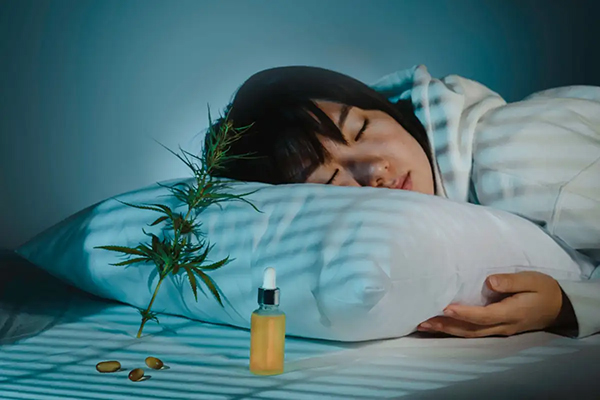News Studies Finds Cannabis Use Improves Sleep Quality For People With PTSD
News Studies Finds Cannabis Use Improves Sleep Quality For People With PTSD

New observational data published in the journal Medical Cannabis and Cannabinoids has found that medical cannabis products are effective in improving symptoms associated with post-traumatic stress disorder (PTSD).
A team of researchers at the University of Florida in Gainesville studied the effects of marijuana on 15 patients who had been diagnosed with PTSD. Each patient in the study had prior authorization from a doctor to use medical marijuana. Patients were assessed at the start of the study and on days 30 and 70. The researchers reported improvements in symptoms following cannabis use, including improvements in sleep quality and mental health, as well as a reduction in patients' nightmares.
"Our main finding was that individuals with PTSD improved overall PTSD symptom severity 30 and 70 days after starting MMJ [medical marijuana]. Post hoc analysis showed that most participants experienced significant improvements in PTSD symptoms at the 30-day assessment and that these improvements remained through the 70-day assessment.
In addition to improvements in overall PTSD symptom severity, participants also reported improvements in sleep quality and duration, as well as reduced nightmare frequency. In addition, they reported fewer negative impacts and improved overall well-being. These findings suggest that the use of MMJ may be associated with clinical benefits for PTSD patients," the study authors concluded.
Researchers at the University of South Florida will begin a clinical trial that will also study the efficacy of medical marijuana in treating symptoms of post-traumatic stress disorder (PTSD). As part of the trial, veterans will receive a dose of medical marijuana and undergo treatment for five weeks, with the study focusing on veterans' mental health. The university received a $13 million grant from the state of Michigan to conduct the research.
"Previous research has suggested that cannabis may help improve some of the symptoms associated with post-traumatic stress disorder (PTSD), helping to reduce symptoms, nightmares and other accompanying symptoms," said Dr. Mark Kindy of the University of South Florida.
In July, the U.S. House of Representatives approved the amendment, including an addition that would allow doctors at the U.S. Department of Veterans Affairs to recommend medical marijuana to veterans. The amendment is proposed to be added to the 2024 Military Construction, Veterans Affairs and Related Agencies Appropriations Bill. Opponents of the amendment say VA doctors could be at legal risk for recommending medical marijuana. Currently, VA providers can discuss marijuana use with veterans, but VA clinicians are not allowed to recommend or cover medical marijuana.
Rep. Brian Mast, who introduced the measure, said, "I support the bipartisan amendment to do something simple - to give veterans every tool possible when it comes to the wounds of war with which I am familiar."
"The amendment is quite simple. It allows VA doctors in states with legal medical marijuana programs to discuss marijuana with patients as a treatment option."
This could be a game changer for veterans and provide access and support for MMJ to help them overcome trauma.
A survey conducted by two researchers at the University of North Texas and the University of Illinois has found that an increasing number of veterans are using marijuana as attitudes toward the drug change across the country, with the survey estimating that one in 10 veterans have used marijuana in the United States over the past year. According to data from the National Survey on Drug Use and Health of more than 16,000 veterans age 18 and older, marijuana use increased 56 percent from 2013 to 2019, and nearly one in 10 veterans (9.79 percent) reported using marijuana in the last year. The researchers also found that older veterans, those aged 35 or older, were more likely to report using marijuana than those aged 18-25.
LOOKAH stands by military and first responders, offering a discount program through VerifyPass. For more information, see our military and first responders discount program.
